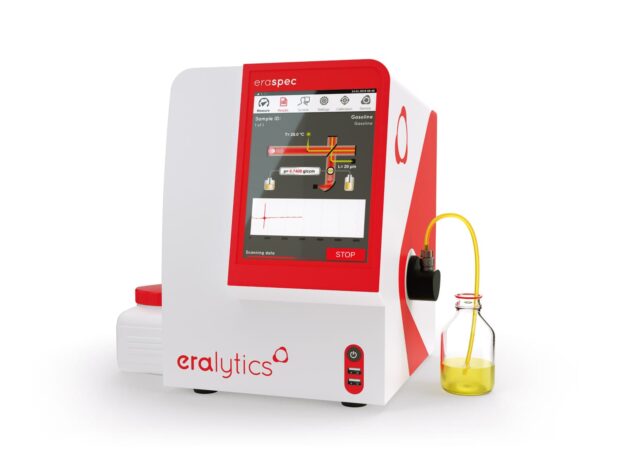Standard Test Method for Distillation of Petroleum Products and Liquid Fuels at Atmospheric Pressure.
Get more information about the standard at ASTM D86-23ae2.
ASTM D86 is a globally recognized standard for determining the distillation characteristics of petroleum products and liquid fuels at atmospheric pressure. This method provides critical information on the boiling range of a sample, which is essential for evaluating fuel quality, safety, and regulatory compliance. ASTM D86 employs a batch distillation process to measure the volatility of hydrocarbons and their distribution within the boiling range.
Details
The ASTM D86 test method outlines a precise procedure for distillation, ensuring accurate and reproducible results. It is crucial for understanding the volatility and evaporation properties of fuels and related products. The method involves heating a sample in a distillation apparatus and collecting condensed vapors over a temperature range. Key parameters obtained include the initial boiling point (IBP), final boiling point (FBP), and the percentage of the sample distilled at specific temperatures.
This data is vital for determining product performance during storage, handling, and use. For instance, in fuels, it directly impacts engine starting, warm-up efficiency, and potential issues like vapor lock. Additionally, ASTM D86 is instrumental in classifying materials for regulatory purposes and ensuring compliance with industry standards.
Industries & Applications
ASTM D86 is widely applied across industries where understanding the boiling range of fuels and solvents is essential for performance and safety:
- Petroleum and refining: Refineries utilize ASTM D86 to evaluate and classify gasoline, diesel, kerosene, and aviation fuels, ensuring products meet specifications and regulatory requirements.
- Aviation: The test ensures that aviation fuels adhere to strict volatility standards for safe and efficient operation
- Automotive: Distillation data helps optimize the formulation of gasoline and diesel fuels, reducing emissions and improving engine performance
- Chemicals and solvents: Used to assess the evaporation rates of solvents and other volatile chemicals, impacting applications like paint formulation and industrial cleaning
- Marine Fuels: Ensures the suitability and compliance of fuels used in marine engines
- Quality Control Laboratories: Regularly used in testing facilities for product consistency and specification adherence
